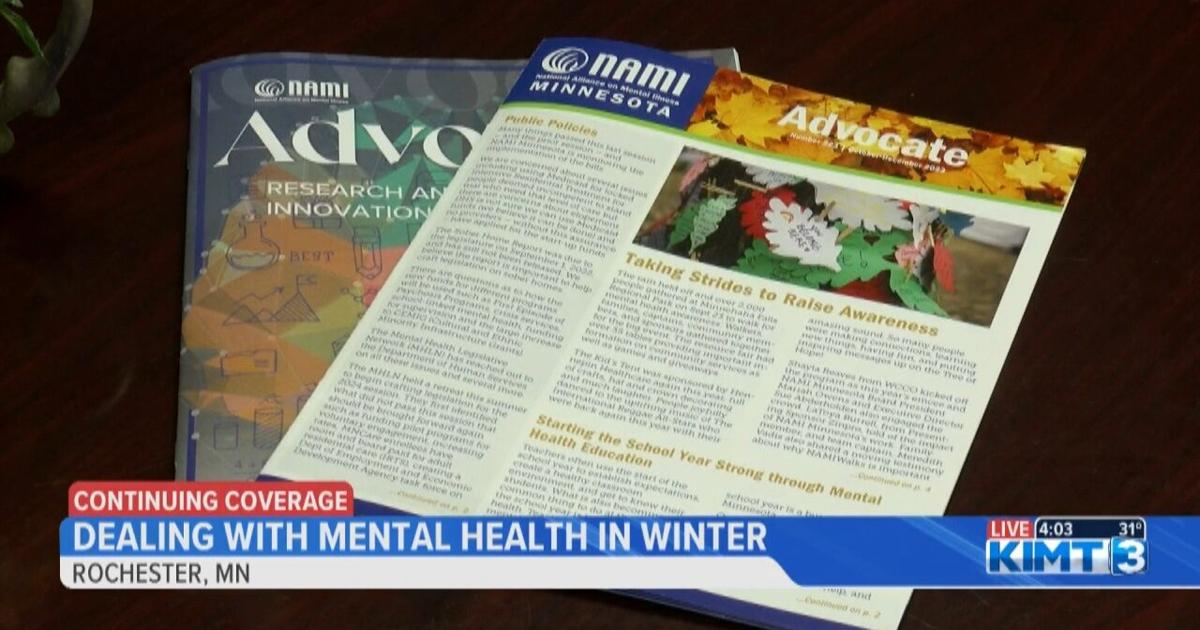
ROCHESTER, Minn. – Thursday’s crisis incident in Rochester is bringing the topic of mental health into the spotlight.
While KIMT News 3 is still working to learn more details about the factors that led to the fatal outcome of the incident, we do know seasonal affective disorder is a common concern among mental health professionals this time of year.
According to the National Alliance on Mental Illness (NAMI), around 5% of adults in the U.S. suffer from seasonal affective disorder (SAD).
This usually heightens the effects of already existing mental health problems, though it can show up in people without prior mental health issues.
Some of the more common causes of SAD are changes in weather leading to less sunlight and time outdoors. Increased stress during the holiday season can also be a factor.
Some of the ways to fight SAD include eating healthier and exercising. Using a light therapy box has also become a popular solution.
Lee Formella, a mental illness advocate who works with NAMI Southeast Minnesota, says learning to advocate for yourself is also an important step to get the support you need.
“If you have a primary care physician you trust, start there,” he said. “Definitely look into therapists in the area. It can be tough but speaking from experience, it is very much worth it to be a little more patient knowing help is around the corner.”
Formella also believes some people choose not to reach out due to the stigma around mental health, seeing it as a sign of weakness.
However, he says asking for help through a crisis can make a big difference.
“These sorts of depressions, especially in the upper Midwest, that depression can come on unexpectedly,” he said. “You’re not alone, it’s not something that makes you weak. Going out and getting help can really make things a heck of a lot better.”
If you are experiencing a mental health crisis, you can call the National Suicide and Crisis Lifeline at 988.
You can also reach out to the Southeast Regional Crisis Center. The hotline is 1-844-274-7472.
